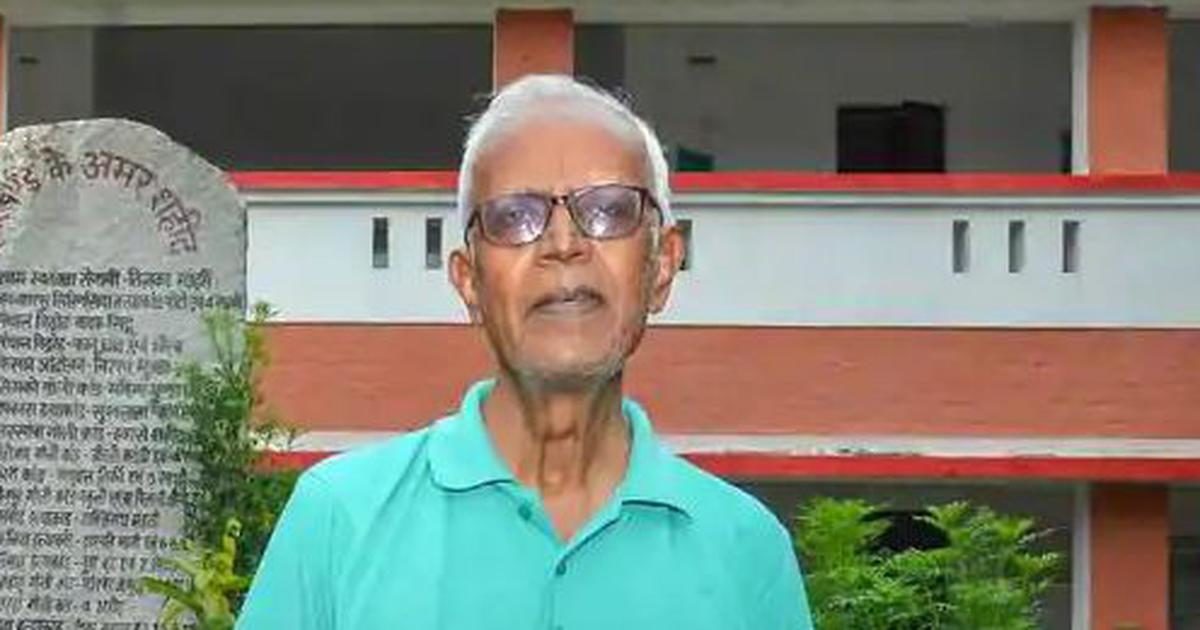Source – scroll.in
Civil rights group Jharkhand Janadhikar Mahasabha on Tuesday rebuked the state police for attaching a few items belonging to human rights activist and Catholic priest Stan Swamy the day before. The police took away two tables, three chairs, a cupboard and a mattress from his home at the Bagaicha campus in Namkum near Ranchi.
The police had filed a sedition case against Swamy and 19 other activists from Jharkhand in July 2018 for their Facebook posts questioning “state excesses in villages that conducted Pathalgadi and attack on Adivasi rights”, said the Jharkhand Janadhikar Mahasabha. Pathalgadi is a practice adopted by some villages to declare their gram sabha as the only sovereign authority, not the state or central government.
“Father had posted an objectionable post,” said Khunti Superintendent of Police Ashutosh Shekhar, according to The Telegraph. “Following this an FIR was registered against him and others. Despite summons and warrant, when he did not appear in the trial court, an order to attach his property was issued.”
The civil rights group condemned “the continuous harassment of activists and public intellectuals who are critical of the policies of BJP governments” and added that “the harassments are wholly unjustified and are part of the government’s growing attempts to stifle dissent and intimidate those fighting for justice”. The police’s attempts “indicate that it is an attempt by the BJP to invent a false enemy and engage in scaremongering in order to polarise the election in its favour”, said the Mahasabha.
The group sought the immediate quashing of the FIR against Swamy and asked the police to drop the charges against him. “Stan is an exceptionally gentle, honest and public-spirited person. Jharkhand Janadhikar Mahasabha has the highest regard for him and his work,” it said, adding that it also sought action against the Khunti Police “for the repression unleashed by it in Pathalgadi villages and building a false case against Stan Swamy and others”.
The civil rights group said the police had used the Facebook posts as the activists’ endorsement of the Pathalgadi movement in Khunti. The movement, which had its epicentre in Khunti district, was a unique form of protest. It used the Adivasi practice of installing stone tablets – traditionally used to mark graves – in order to list out constitutional provisions that award vast powers to village councils in Adivasi-dominated Fifth Schedule areas. The movement has been tarred by linking it to Maoists, and branded secessionist and anti-national.
“Among other sections, they [the 20 people] have been booked under 66A of the Information Technology Act 2000, which was repealed by the Supreme Court in 2015,” the group said in its statement. It added that Swamy and three others – rights activists Aloka Kujur, Rakesh Roshan Kiro and Vinod Kumar – had challenged the FIR in Ranchi High Court.
But even though the hearing is on, the local police approached the district court and got an arrest warrant on June 19, the group said. “However, such a warrant can only be issued if it is proved that the accused is hiding or trying to evade arrest,” it added. “Before the warrant was issued, neither did the Khunti police visit the residences of Stan and others to inquire if they were present nor did it send them any notice. This raises questions on the legality of the warrant itself.”
The civil rights group pointed out that “just a week before the warrant was issued, Stan’s room was raided by the Maharashtra police, in the presence of Jharkhand Police, in the Bhima-Koregaon case”. Swamy’s presence at Bagaicha during the raid was reported widely reported in the media, “and yet, the Khunti Police got an arrest warrant issued in a week”, the group added.
The four activists filed an application to quash the warrant in the High Court but the Khunti court declared Swamy an absconder on July 22, said the Jharkhand Janadhikar Mahasabha. Though Swamy appealed to quash this order as well, the notice to attach his property was issued on September 24.
“The irony of the Khunti police declaring Stan an absconder, even though he fully cooperated with the Maharashtra police in their investigations (and was available at his residence) in the same period was raised by his lawyer in the High Court,” the statement added. “The government lawyer asked for additional time when he was asked by the court to explain this paradox. He was asked to justify the state’s orders, regarding the arrest warrant and declaring Stan an absconder, on the next hearing scheduled for October 23.”
The attachment of Swamy’s belongings two days before the hearing “indicates an attempt by the police to ensure that Stan’s appeal for quashing of arrest warrant becomes infructuous”, the civil rights group added.
